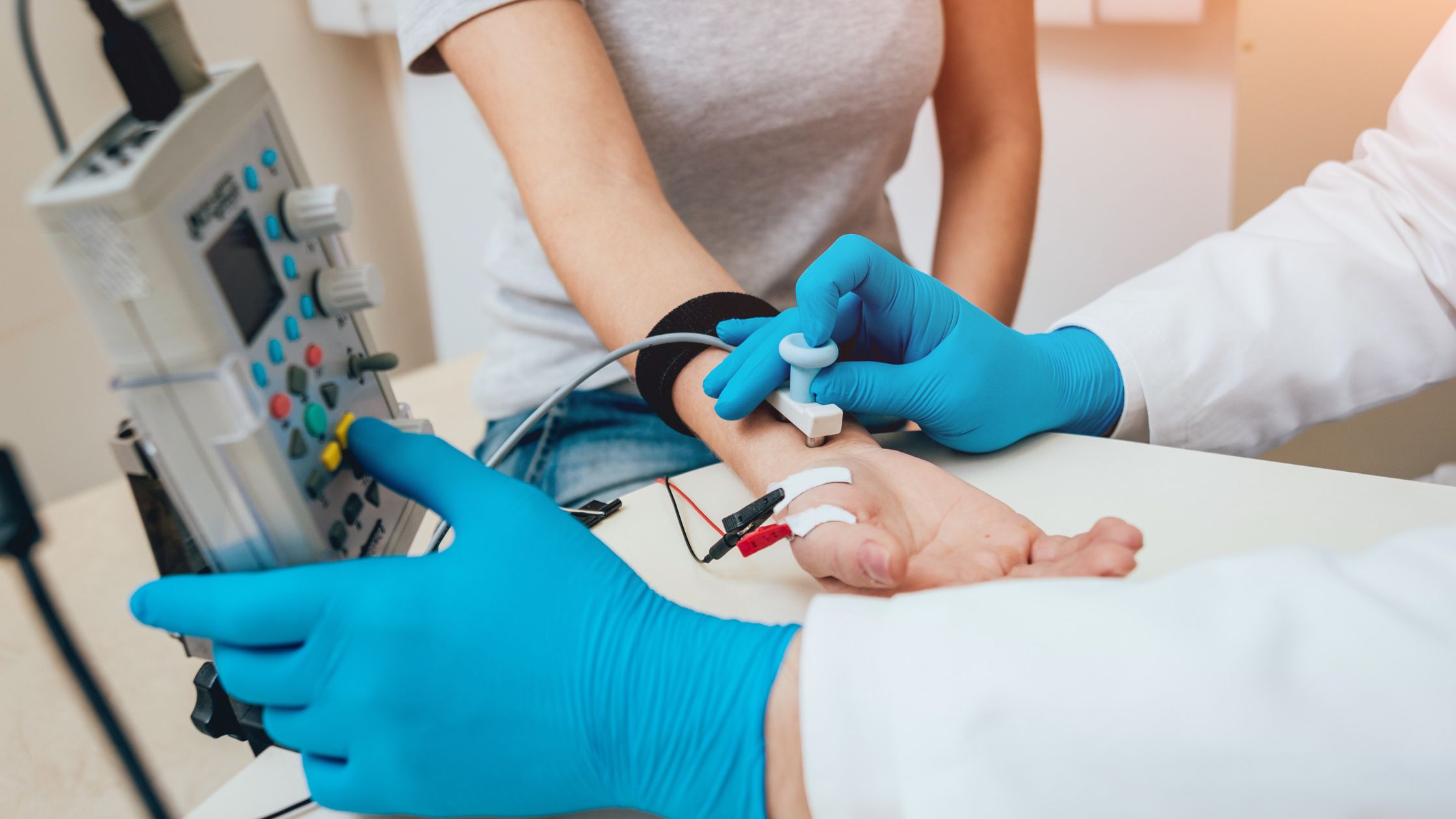
04 Apr Navigating Your EMG/NCS Appointment: A Comprehensive Guide to Preparation
Electromyography (EMG) and nerve conduction studies (NCS) are vital diagnostic tools used to assess the functionality of muscles and nerves in the body. If your healthcare provider has recommended an EMG/NCS appointment, you may understandably feel a mix of curiosity and apprehension. However, adequate preparation can alleviate much of the anxiety associated with these procedures. In this guide, we’ll delve into essential steps to prepare yourself mentally and physically for your EMG/NCS appointment.
Consultation and Referral: What to Discuss with Your Healthcare Provider
Before diving into the technicalities of an EMG/NCS, it’s crucial to have a clear understanding of why you’re undergoing the test and what it entails. During your consultation with your healthcare provider, don’t hesitate to ask questions such as:
- What symptoms or concerns warrant an EMG/NCS?
- What information are we hoping to gather from these tests?
- Are there any alternative diagnostic procedures?
- What are the potential risks and benefits of undergoing EMG/NCS?
- Will the results of these tests impact my treatment plan?
Having these discussions will not only provide clarity but also empower you to actively participate in your healthcare decisions.
Preparing Mentally and Physically: Tips for Relaxation and Comfort
The prospect of undergoing medical tests can induce stress and discomfort in many individuals. However, adopting strategies to promote relaxation can significantly enhance your experience during the EMG/NCS appointment. Consider the following tips:
- Practice relaxation techniques: Engage in deep breathing exercises, progressive muscle relaxation, or mindfulness meditation in the days leading up to your appointment.
- Get adequate rest: Ensure you’re well-rested on the day of your appointment to optimize your comfort during the procedure.
- Wear comfortable clothing: Choose loose-fitting attire that allows easy access to the areas being tested.
- Bring a support person: Having a friend or family member accompany you can provide emotional support and reassurance throughout the appointment.
Remember, your comfort and well-being are paramount, and taking proactive steps to manage stress can make a significant difference.
Medications and Restrictions: Guidelines to Follow Before the Procedure
Certain medications and lifestyle factors can potentially interfere with the accuracy of EMG/NCS results. Therefore, it’s essential to adhere to specific guidelines provided by your healthcare provider. Consider the following recommendations:
- Inform your healthcare provider about all medications you’re currently taking, including over-the-counter drugs and supplements.
- Follow any instructions regarding the discontinuation or modification of medications before the test, as advised by your healthcare provider.
- Avoid consuming caffeine or nicotine before the appointment, as these substances can affect nerve function and skew test results.
- If you have any medical conditions or concerns, discuss them with your healthcare provider beforehand to ensure appropriate accommodations are made.
Adhering to these guidelines will help ensure the accuracy and reliability of your EMG/NCS results.
Questions to Ask: Clarifying Doubts and Concerns Prior to the Test
Feeling uncertain or anxious about the EMG/NCS procedure is entirely normal. To ease your apprehensions and gain a better understanding of what to expect, consider asking the following questions:
- Can you walk me through the step-by-step process of the EMG/NCS?
- Will the procedure cause any discomfort or pain?
- How long will the appointment typically last?
- Are there any potential complications or side effects I should be aware of?
- When can I expect to receive the results, and what will happen afterward?
By seeking clarification on these aspects, you can approach your EMG/NCS appointment with greater confidence and peace of mind.
Contact Island Rheumatology Today!
Preparing for an EMG/NCS appointment involves more than just showing up on the day of the test. By actively engaging with your healthcare provider, adopting relaxation techniques, adhering to medication guidelines, and seeking clarification on any concerns, you can ensure a smoother and more comfortable experience. Remember, your participation in the preparation process plays a crucial role in obtaining accurate and meaningful results from these diagnostic procedures. Trust in your healthcare team, stay informed, and prioritize your well-being every step of the way. Contact Island Rheumatology today to learn more and request an appointment!

